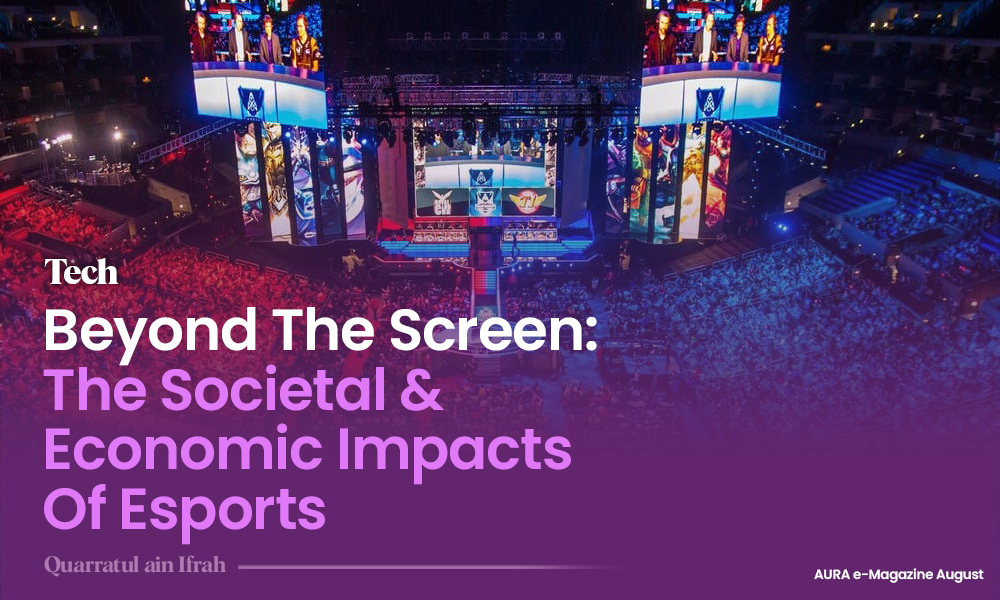The picture of playing video games from the couch in your room has now changed to big-lit stadiums across countries, and the words of your parents scolding you have turned to a thunder of applause from thousands worldwide. The gaming industry is evolving like never before, but how ready are we to accept it as “Sport”? How different is it from the glory of physical athleticism, and is it worth the hype?
ARE E-SPORTS SPORTS?
Living in a world of virtual markets, online food, virtual shopping, virtual education and virtual everything, it is strange that we are still hostile to virtual sports – even though they have grown as much as any other sector, Esports remain out of the socially appreciated form of entertainment. Because video games do not involve much physical effort or fitness, they are not universally accepted as “sports”.
But the arguments are mixed. Virtual games require practice, precision, timing, and skilful execution that activate cognitive parts of the brain as much as traditional sports—and with all the fierce competition, the generation has been calling them ‘the new sports’. In other words, the mental effects of chess on board or chess on screen have become the same as baseball on the field and baseball on screen.
ORIGIN
Video games were invented as early as 1958, but the earliest form of an Esports tournament was held in 1974 at Stanford University for the game Spacewar. Konami and Centuri held an international arcade tournament in 1984 that attracted more than a million players across Japan and North America. The 1997 Asian Financial Crisis spurred the Esports Industry in countries like South Korea due to high unemployment, which benefits their economy to this day. The easy accessibility of Esports in different parts of the world has quickly created a broader audience and more ambitious players. The simple playing of games on the computer widened to offline and online tournaments, ticketing and sponsorships, training, advertisements, and jobs in game development, all of which have generated millions in the past few years.
GROWTH
The fast pace of the gaming industry already experienced a huge boom after the lockdown, when popular games were not only being played from home by thousands of new players but also streamed online on sites like YouTube and Twitch for millions more to watch. India recorded about 520 million online gamers by 2022, almost 50% higher than 2020. The revenue of 3.1 billion USD in 2023, expected to double by 2028 nearly, has made India the world’s largest gaming market. The government of India recently introduced 100% FDI in the gaming sector, which is expected to widen the revenue on a larger scale.
Russia was the first to officially recognise “cybersports” in 2017, and it has spread to 143 countries, doing so in the International Esports Federation by April 2024. The International Olympic Committee announced the Olympic Esports series in November 2021, consisting of five games: e-baseball, cycling, sailing, chess, and taekwondo.
MIDDLE GROUND
Gaming has been creating a huge industry, but to what extent can it compare with the word “sports”?
Esports improve the player’s cognitive abilities, such as attention, memory, and visuospatial cognition, and encourage skills like teamwork, social cohesion, and strategic thinking, which are very similar to the traditional form of sports. Still, they also have adverse effects on mental health due to high screen time, addiction, stress, and high noise levels, besides degrading physical and social health. All these do not create a positive environment for them to be readily accepted as “sports.”
The forms of online gaming still do not have some set rules; the entire sport depends on the game’s point system. An integrated global institution must have adequate funding and national support that is received easily in traditional sports.
There is a prevalent cultural bias in the older generations that video games are a leisure activity and not a global sport; apart from that, the most unacceptable factor is the game itself. Popular games like Freefire, Fortnite, and Valorant consist entirely of hunting down and killing people, which is against the healthy spirit of sports.
IOC president Thomas Bach stated that “sports is a civilised expression. If you have E games where it’s about killing somebody, then it cannot be brought into line with our Olympic values.”
If the basic challenges to Esports, such as cultural perceptions, institutions, and health concerns, are tackled, the future of Esports is likely to be impactful.
The only visible benefit is in the economy as of now, but building it on other social, emotional, or productive values remains to be done.


0 Comments